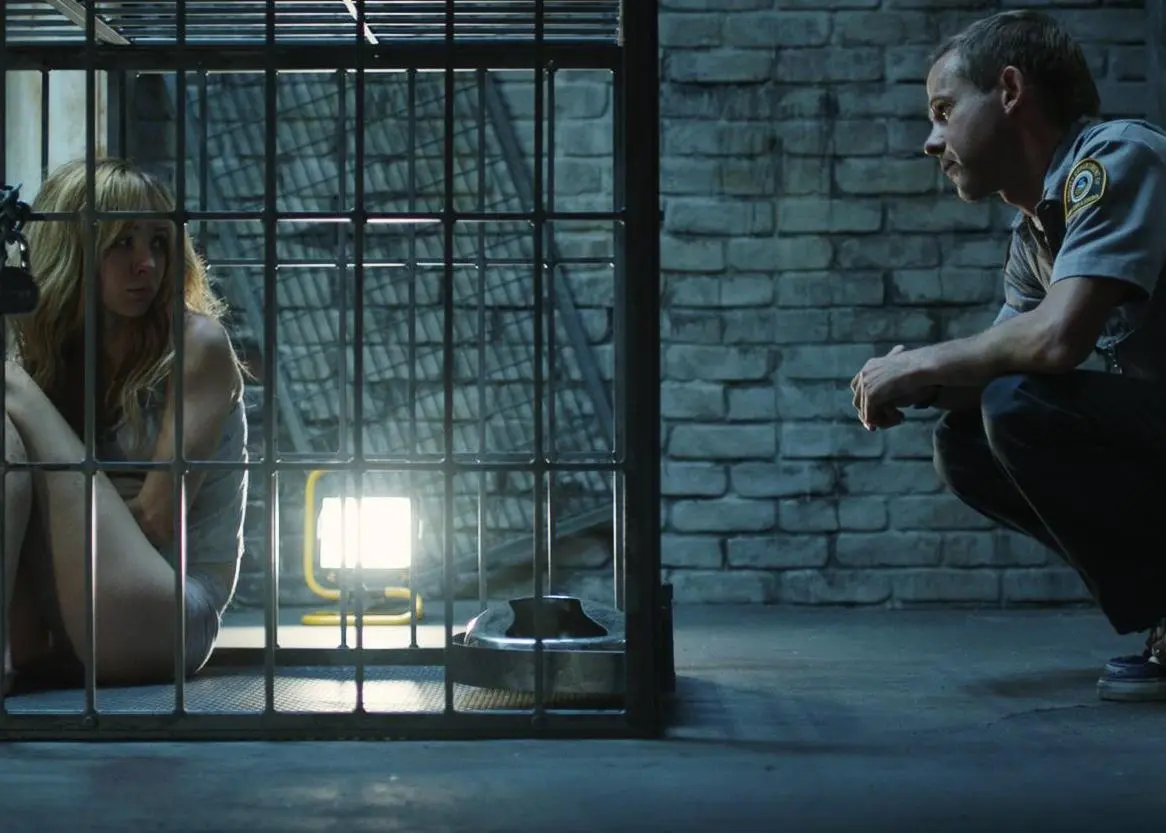SXSW Interview: Ksenia Solo on her Role in Pet

Canadian actress Ksenia Solo is known for plenty of challenging roles, from her award-winning role in Renegadepress.com to playing Natalie Portman’s rival in Darren Aronofsky’s Black Swan. While she has experience in many different types of film and television, from historical drama Turn to the sci-fi series Orphan Black and Lost Girl, she has resisted the scream queen offers—until now.
In Carless Torrens’s Pet, costarring Dominic Monaghan, Solo plays a woman abducted by a disturbed man she barely knows and locked in an animal cage … only turn the tables on her capturer. I spoke with Solo during the SXSW on her role as Holly and the appeal of her disturbing new film.
Lesley Coffin (TMS): How were you approached to play the role?
Ksenia Solo: I’d been sent many horror movie scripts before and always turned them down. But when they sent me this one, my manager told me it was one of the most disturbing films he’d ever read. I might not like it but I should give it a read. And I read the script and agreed. But I also knew it would be challenging. So they sent me one of the directors’ films to look at and I thought it was brilliant. So between the script, which I though was great and the director, I said this one I’ll do. This is one I really want be a part of.
TMS: What prevented you from doing horror before this film?
Solo: I like a lot of horror films, but so many of them make women only into the victim. And this one plays on that premise, but flips it and makes the female the person in control and ultimately the villain. And I have nothing against those other horror movies, but I’m more interested, if I’m going to do a genre movie, I want that twist. And this movie almost defines genre conventions. It just felt so different that I wanted to be a part of it.
TMS: How did you feel about playing someone that really uses her sexuality to manipulate and control someone else?
Solo: Well, it’s all character driven. She feels that it is one of her few assets in this situation, which it is. And she knows that it is his weakness. He isn’t just attracted to her, he thinks he loves her. And while the movie is really disturbing, it isn’t explicit in what it shows. So while it was difficult to do some of the scenes, what she did made sense considering who she is and how disturbed she is as well.
TMS: What was it like acting inside the cage?
Solo: It was definitely a challenge because it was really small. I could sit up and still had about half a foot of space between my head and the top. But I couldn’t stand at all. So I would go home with a back ache and scratches and bumps. But having that restriction made me more aware of my body and how I use it as an actress. When you have all the space and freedom in the world, you can forget that, but having those restrictions really helped me in the long run. I was amazed by the look of the film, and that is to the credit of the director and our DP. They really took the challenge to heart and used that space to tell the story.
TMS: Why do we have so many movies out recently, in horror, thrillers, dramas, that play on that fear of being a captive, particular being a woman held captive?
Solo: I don’t know. Watching something like Room, the terror I felt about that situation was certainly similar to the tension I’ve felt watching a lot of horror films. And knowing that there are real cases of abduction and capture, multiple examples of women, makes that terror feel all the more real. Because it hits on our worst fears. Being abducted and held captive and forced to be at the whims of someone who wants to control you. They want to treat someone as a pet by forcing them to show them unwarranted respect.
TMS: You are literally saying the themes of the movie, and the dialogue isn’t subtle or natural at all. Did that take some time to understand how to approach the language?
Solo: It helps to have a really good costars to play off of, which Dominic is. We really enjoyed doing the back and forth. And having a director that allowed us to attempt a heightened sense of reality. The audience shouldn’t think of this as naturalistic, but are hopefully pulled into the intrigue, wondering what is going on, so they allowed for that type of dialogue. But you are right. It isn’t conversational dialogue at all.
Lesley Coffin is a New York transplant from the midwest. She is the New York-based writer/podcast editor for Filmoria and film contributor at The Interrobang. When not doing that, she’s writing books on classic Hollywood, including Lew Ayres: Hollywood’s Conscientious Objector and her new book Hitchcock’s Stars: Alfred Hitchcock and the Hollywood Studio System.
—Please make note of The Mary Sue’s general comment policy.—
Do you follow The Mary Sue on Twitter, Facebook, Tumblr, Pinterest, & Google +?
Have a tip we should know? tips@themarysue.com